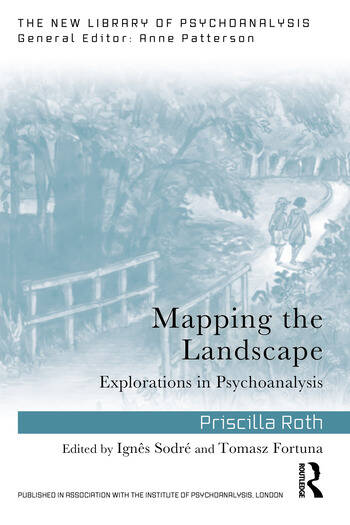Mapping the Landscape: Explorations in Psychoanalysis

Book Details
- Publisher : Routledge
- Published : 2025
- Cover : Paperback
- Pages : 152
- Category :
Psychoanalysis - Catalogue No : 98206
- ISBN 13 : 9781032959474
- ISBN 10 : 1032959479
Reviews and Endorsements
Reading Priscilla Roth’s papers, collected here for the first time, is a remarkable pleasure: lucid, compassionate and deeply humane, she brings the reader into the consulting room where we follow her careful thinking alongside her experience of her patients. These richly attuned, precisely depicted essays bring psychoanalysis to life. Singularly adept at evoking the texture of an analytic hour, Roth conveys complex theoretical principles in language every analyst will appreciate.
Dr. Lynne Zeavin, The New York Psychoanalytic Society & Institute, Journal of American Psychoanalytic Association
Mapping the Landscape shows us a skillful clinician and lucid psychoanalytic thinker at work. Priscilla Roth’s essays are important contributions to contemporary Kleinian literature. They are already required reading on various clinical trainings, and, thanks to this book, will deservedly gain a still wider readership. Highly recommended.
Prof. Daniel Pick, Birkbeck, University of London, and British Psychoanalytical Society
This is a fine collection of psychoanalytic papers, which reflect Priscilla Roth’s clinical experience and knowledge, and her deep understanding and sympathy with her patients. The writing is clear and direct, and she has the capacity to make even complex ideas accessible to the reader. This book should be of great interest and value to a wide variety of readers.
Michael Feldman, Distinguished Fellow, British Psychoanalytical Society
This collection of PR papers over a lifetime of practice as a distinguished psychoanalyst is prefaced and introduced by lucid contributions by Tomasz Fortuna and Ignes Sodre. These paper by PR are stimulating, insightful and the evidence of an intelligent mind at work on the human condition. We are given access to the very convincing process of her thinking and finding ways to communicate with her patients that is illuminating for all of us working in this field. We highly recommend this interesting and intelligent book.'
Martha Papadakis and Ron Britton

